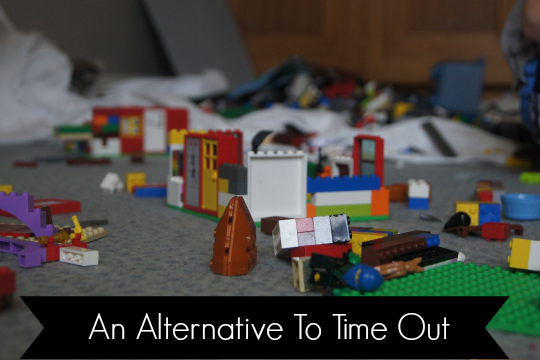
I have many parents come to my blog looking for answers on their children’s behaviour. They tend to land on my posts about:
- Characteristics of Two (and a half) Year Old Behavior
- Characteristics of Three (and a half) Year Old Behavior
(When my 4 year old hits 4 1/2 and the behaviour ramps up again, you will see me post about 4 1/2 year old behaviour 🙂 .) One of my favourite parenting podcasts is from an ABC Local Radio program Tripe P Parenting. Each week they have Professor Matt Sanders on to talk about a range of parenting issues. I don’t necessarily agree with 100% of what is said, but I like the overall philosophy and it always gives me something to think about. Recently the podcast was on Managing Disobedience which contained some great information of discipline strategies for children and I thought I would share with you some notes from the podcast.
Triple P Parenting Podcast – Managing Disobedience
Professor Matt Sanders listed four traps that parents tend to fall into when disciplining children who aren’t co-operating. (Note that these aren’t direct quotes but I have paraphrased the podcast.)
1. Asking too much.
Either asking them to do too many things in one instruction or simply giving too many instructions. In on observation at his practice a parent made 90 instructions to a child in 20 minutes – “don’t do that, hop down from there, move away etc etc etc.” You can halve disobedience if you halve the instructions that you give a child.
2. Vague instructions.
Many parents make very vague requests of children. For example “Don’t be silly!”. When they really mean don’t jump on the couch. It is better to tell children what it is that you want them to do, not what you don’t want them to do. So instead of saying, “Don’t jump on the couch” you can tell them “If you want to jump, go outside on the trampoline and jump.”
3. Poorly timed instructions.
Expecting children to cooperate with instructions when they are in the middle of their TV program or sometimes without any warning, is asking for them to be disobedient. You are better off to say “at the end of this show” or “we will be leaving in 5 minutes”. Giving children warning about change can reduce disobedience.
4. The escalation trap.
Professor Sanders gives the following great example of how this happens: Parent in a civil and calm voice: Please turn off the TV and have a bath. Child: Ignores and doesn’t move. Parent turns up the volume and repeats: Please turn off the TV and have a bath. Child: Ignores and doesn’t move. Parent turns up the volume again and often adds in a threat: Turn off the TV and have a bath. Child: Begrudgingly gets up, turns off TV and has a bath. In this example the child has accidentally rewarded the parent for shouting as the child has only co-operated once the parent has reached boiling point. Parents can then fall into the trap of thinking that the only way to get their kids to do anything is turn up the volume. This is the opposite of what an unco-operative child needs to learn. They need to learn to co-operate when they are asked in a civil and calm manner to do something.
So what can parents do to avoid these traps?
Professor Sanders says that are two ways in which parents can avoid these traps the first focuses on preventative measures:
- Make sure the kids have plenty to do. Interested and occupied kids are less likely to be disobedient and disruptive.
- Acknowledge and encourage children when they are co-operative. Make sure that feedback is clear and specific, eg thank you for taking your plate away from the dinner table.
The next bit of advice is for when children are being unco-operative:
- Get close (arms length) and in a firm and calm voice ask them for their co-operation (eg turn the TV off). Don’t yell from the other end of the house.
- Give them five seconds to to get themselves ready without any further comment.
- Make the same request again – don’t raise your voice, use the same firm and calm voice.
- If they co-operate, acknowledge this.
- If they don’t in a calm voice explain that you have asked them twice and they are still not co-operating and go to a back up.
- Back ups will vary depending on the circumstance, but may be something like not watching television the next day.
- Other back ups are quiet time and time out.
Now this is a part that I don’t agree with. The quiet time Professor Sanders describes is similar to time out, but that it occurs in the place where the lack of co-operation occurred. I do want to say that the quiet time and time out that Professor Sanders advocates, is not like the punitive version many of you may have seen on Super Nanny. As a new parent I did use time out with my first child, but very quickly worked out this was not a discipline strategy for me (and it didn’t work!). But besides the time out bit at the end, I think this podcast offers sound advice to parents.  You can see the alternative I use to time out in this post here. All families are different and what may work for one, might not for another. What discipline strategies do you have that work for you?
You can see the alternative I use to time out in this post here. All families are different and what may work for one, might not for another. What discipline strategies do you have that work for you?
